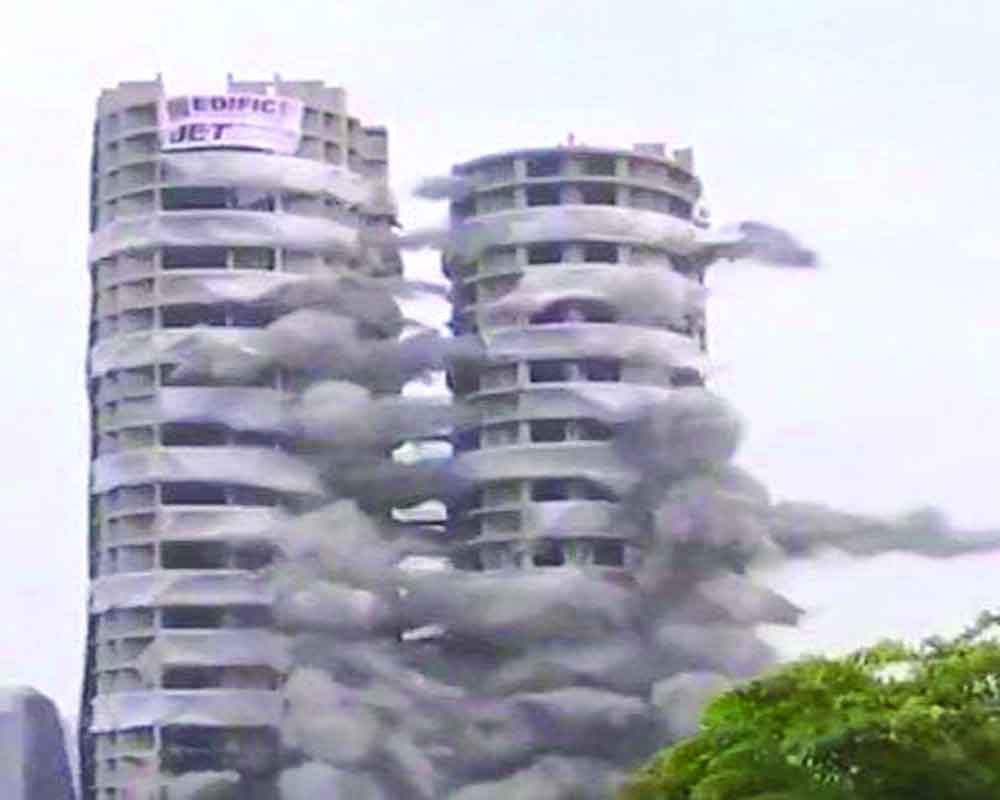The need of the hour is administrative reforms. Only that will prevent the erection of towers of corruption
The demolition of the Supertech Twin Towers at Noida in Uttar Pradesh was the result of a decade-long legal battle that the residents of Supertech Emerald Court housing society fought heroically. The Sunday demolition became a national event because it had all the ingredients of the grand narrative that we love: a David (Emerald Court residents) versus Goliath (a big, bad coloniser) fight, people’s perseverance and tenacity trumping over a stinking builder-politician-bureaucratic nexus, the judiciary siding with and exposing the nexus, and of course the spectacle of the towers collapsing like a house of cards. Everyone in our country, from top politicians to the media to the man on the street, loves a good spectacle. It would, however, be unfortunate if the real issue—that of corruption involved in the realty business, indeed in the entire urbanisation process—gets lost in the spectacularity of the narrative. The general belief is that the fall of the towers which dominated the skyline in their vicinity will send a strong message to builders and officials; now they know that however powerful and influential they may be, their actions will, or at least can, have consequences. This is indeed a comforting belief which is also grounded in reality, but it should not cloud our vision about the magnitude of the problem. The demolition should be seen as a beginning, not the culmination, of people’s struggle for justice and fairness.
Just as one swallow does not a spring make, a victory does not all nexuses break. At the heart of the problem is the very nature of the realty business and the dynamics involved: it involves maximum interface with the authorities at various levels, varying from the panchayats to state governments. These are the levels where administrative reforms are direly needed—and are sadly missing. Politicians don’t seem to be interested in such reforms. Does any of them remember something called the Second Administrative Reforms Commission, headed by Congress leader M Veerappa Moily? It prepared as many as 15 reports, the last of which came out in April 2009. Nobody has heard about administrative reforms—or, for that matter, police and judicial reforms—since then. Our politicians refuse to realise the truth that without a proper administrative apparatus all their promises and programmes can come to naught. It says something about their obtuseness that neither the government nor the Opposition is bothered about administrative, judicial, and police reforms; they are happy with tokenism and emotive issues. At the time of Independence, the engine bequeathed by the British Raj was rickety; instead of repairing it, politicians have burdened it with a myriad other duties, including welfare measures. The denouement is the mess that is India. The need of the hour is a serious endeavour on the part of the entire political class to formulate and execute a slew of administrative reforms, to bring in structural changes. Only that will prevent the erection of more towers of corruption.


























